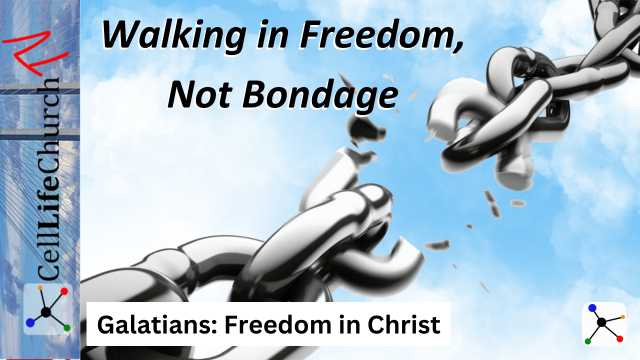We are continuing our discussion on Jesus’ Sermon on the Mount. Today we are teaching the important concept of “Do Not Judge”.
Estimated reading time: 6 minutes
Table of contents
Downloads and Links
Watch the video of this teaching at https://www.celllifechurch.tv/do-not-judge/ or on our YouTube channel at https://youtu.be/4mvmLEkkxIg
Introduction
We have been discussing Jesus’ Sermon on the Mount found in the gospel of Matthew chapters five through seven. This passage of scripture has some of the most important doctrines we have as the Church and it is teaching directly from Jesus Christ. Today, we are continuing our discussion and looking at Matthew 7:1-5. In this passage, Jesus talks about judgment and how we should treat others. Let’s read Matthew 7:1-5.
Matthew 7:1-5
(1) “Do not judge, or you too will be judged. (2) For in the same way you judge others, you will be judged, and with the measure you use, it will be measured to you. (3) “Why do you look at the speck of sawdust in your brother’s eye and pay no attention to the plank in your own eye? (4) How can you say to your brother, ‘Let me take the speck out of your eye,’ when all the time there is a plank in your own eye? (5) You hypocrite, first take the plank out of your own eye, and then you will see clearly to remove the speck from your brother’s eye.
This passage is about not judging others, while still being honest and accountable with each other.
We all know that it’s easy to make judgments about other people. We judge others based on their appearance, their beliefs, or even how they spend their money. But that’s not what Jesus wants us to do. He wants us to be honest and open with each other, but without passing judgment on one another.
So, how do we do that? How do we be honest and accountable with each other without judging? Let’s look at three practical steps on how to achieve this.
Every Person is Valuable
The first step to not judging is to remember that every person is valuable. We all have worth and value in God’s eyes. Look at what Jesus says about our value in Matthew 10:29-31.
Matthew 10:29-31
(29) Are not two sparrows sold for a penny? Yet not one of them will fall to the ground outside your Father’s care. (30) And even the very hairs of your head are all numbered. (31) So don’t be afraid; you are worth more than many sparrows.
Jesus tells us that even the hairs of our head are numbered and God knows each one. That is valuable! We matter to God as individuals.
This is something that we need to keep in mind when we’re interacting with others, especially when it comes to difficult conversations. We must remember that everyone is valuable and treat them with respect and kindness.
If you can see everyone the way Jesus sees them and treat them with the same respect and kindness that Jesus does, you will acknowledge their value. It is very difficult to negatively judge people when you respect them, even when you do not agree with the circumstances that got them in their current situation. That leads us to the second step of not judging others, considering the context of their situation.
Consider the Context
The second step to not judging others is to consider the context. Before we jump to conclusions and make judgments about someone, we need to consider the context. What is the situation? What is the other person feeling or going through? When we take the time to consider context, it helps us to be more understanding and compassionate with others.
People find themselves in many situations that could be very compromising. These can be situations leading down the wrong path and away from Jesus. Imagine the thief who steals food to feed their small children. Imagine the person who grew up in an abusive home and does not know any relationship that is not physically or verbally abusive. They often become abusive themselves.
These situations and their perspectives do not excuse their behavior or actions, but they do give us an understanding of their context. This is exactly what Jesus did with the woman at the well that we read about in the gospel of John chapter 4.
Jesus knew her situation and did not condemn her. He understood her context of being a Samaritan and having had multiple husbands. She was so ashamed of herself and her situation that she was going out in the heat of the day to draw water from the well so she didn’t have to face her neighbors.
I am reminded of a church that would not help someone in their community with food or paying an electricity bill for them when times were difficult unless the person took a class on financial stability and budgeting. The church group made that a requirement to receive any financial help from the church.
I understand the concept and the desire to help the person not fall back into the same place again, however, this was a rule without exception and without even asking why the person needed help paying the bill or buying food.
Jesus did not judge the woman at the well. He talked to her, encouraged her, and forgave her. We must do the same. Jesus showed the woman grace and we must do the same.
Practice Grace
That is the third step in not judging anyone; practice grace. We all make mistakes and we must show grace to each other in those moments. The Apostle Paul teaches us in Ephesians 4:32:
Ephesians 4:32
(32) Be kind and compassionate to one another, forgiving each other, just as in Christ God forgave you.
This instruction from Paul is more than just with each other in the Church. We must practice grace with everyone we encounter. We do not know their situation or the circumstances that got them to where they are at that moment. But, we do know that each and every one of us was stitched together in our mother’s womb under the direction of God with a plan and a purpose in this life.
Often people do not know the plan and purpose God has for them, or they have gotten off track from it. It happens to all of us. We all make mistakes. Every day we all have the opportunity to start fresh. It is a new day. The mistakes of yesterday are behind us. We all want grace from others, this means we must show grace to others.
We must show grace to each other when we make mistakes and show understanding in difficult situations.
Conclusion
I have known many people who would never enter a church. Many of these people tended to be critical and judgmental of others and expected the same thing from others, especially church people. This is how they have survived in the world and live for themselves and their families. They need a life change. They need to be introduced to Jesus.
People who do not know Jesus are far more apt to listen to what you have to say if you have acknowledged their value in the eyes of the Lord, respected them by understanding their context or situation, and have shown them grace. Do not judge them for their past or their current situation. Look at them with the love, grace, mercy, and forgiveness of Jesus Christ and reach out a helping hand.
Show them that every person is valuable by your actions. Teach them about understanding everyone’s context and how it has shaped who they are. Show them how to practice grace with others by showing them grace yourself.
Practice these three steps: remember that everyone is valuable, consider the context, and practice grace. It will change your relationship with your family and the others in your church and neighborhood. It will also help you see the world through the eyes of Jesus. You will find yourself having more and more compassion for those you come in contact with. You will also find yourself able to speak life into more and more people’s lives and introduce them to Jesus.
Friends, we encourage you to remember that everyone is valuable, consider the context, and practice grace. When you do this, you will be able to have honest conversations without judging one another and you will be showing the love, grace, mercy, and forgiveness of Jesus Christ to this lost and dying world.









Leave a comment